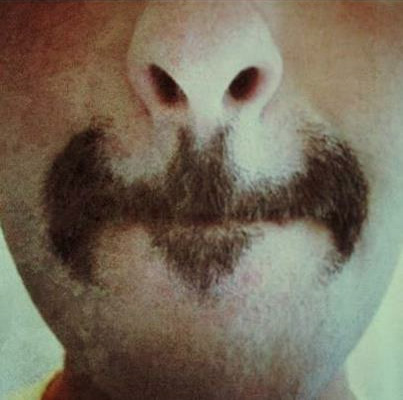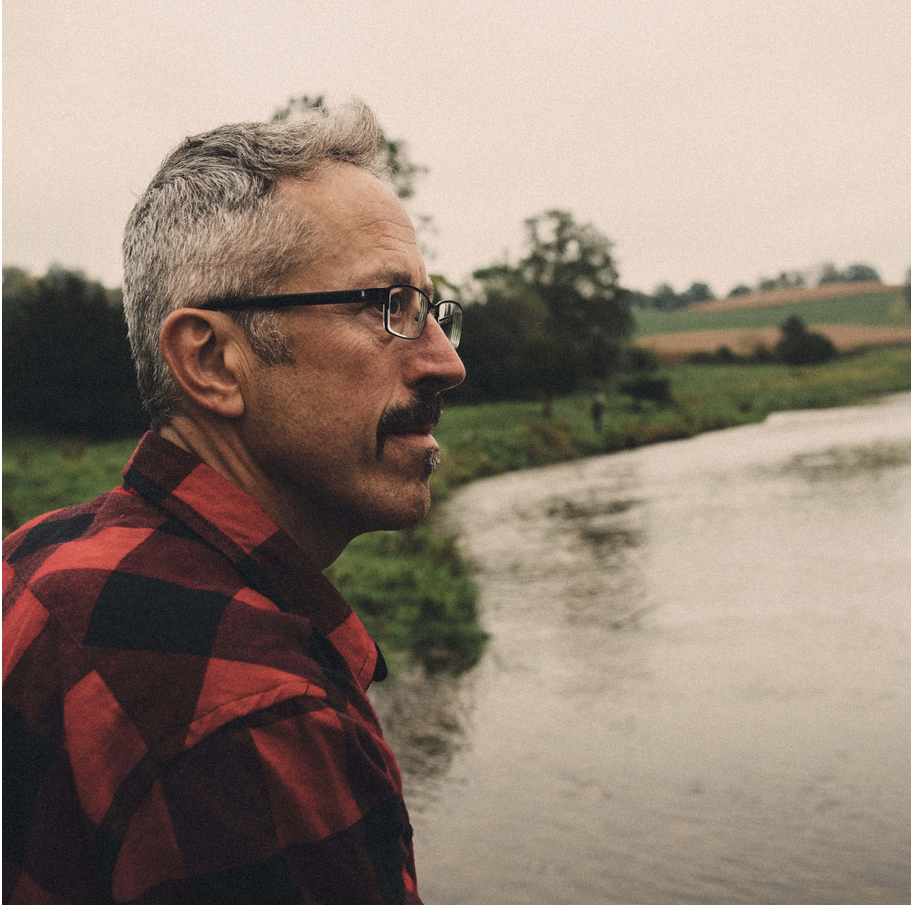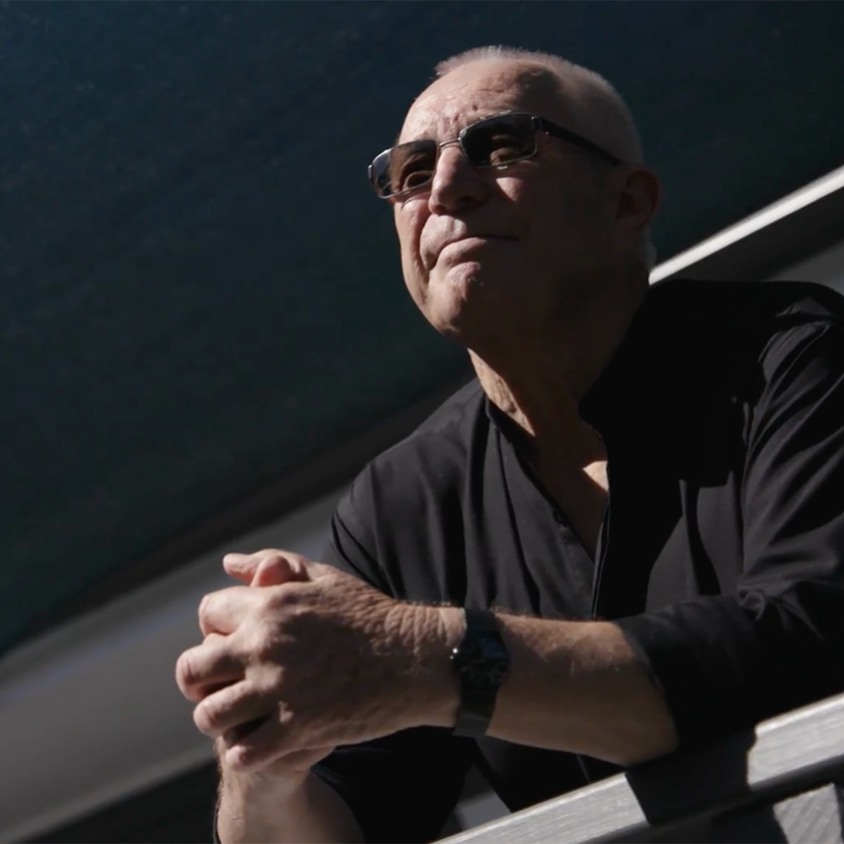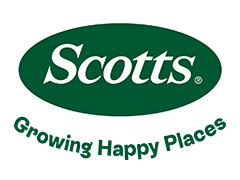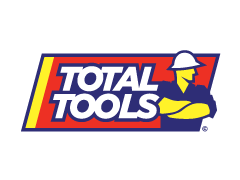No matter how remote, every Australian man diagnosed with prostate cancer can access the best medical support. TrueNTH’s Care Coordinator nurses connect the specialist with the patient – wherever they are.
“Excuse me mate, can I talk to you about prostate cancer?”
It’s not what you’d expect to hear at an agricultural trade show on the New South Wales north coast. But TrueNTH Care Coordinator David Hughes likes to get to the point – he’s passionate about reaching men and empowering them with knowledge about their health.
“[There was] about 20 or 30 acres of tractors and busses and lawnmowers and power tools. [I was] talking to men and their partners about prostate cancer from nine in the morning to four in the afternoon – standing in the sun.”
Funded by the Movember Foundation, TrueNTH is the world’s largest single investment in prostate cancer interventions and programs that support men with information, tools and resources as they navigate their journey with prostate cancer.
Mr Hughes works with men right across the spectrum of prostate cancer conditions – from diagnosis through late stage palliative care. The TrueNTH Care Coordinators are experts in the prostate cancer treatment journey, and they fill the gaps between several medical services to guide and enable men diagnosed with prostate cancer to improve their quality of life.
“First thing you say to the blokes 'this is a free service buddy, I'm not charging you a cent' and they go oh really. You go 'yep mate I'm free and I'm here as long as you need me'.”
There are currently only four TrueNTH Care Coordinators in Australia, but they reach out across the entire country through Telehealth to support men in even the most remote communities. Men diagnosed with prostate cancer can be referred to them at any stage in their treatment journey.
“Telehealth is the most underutilised form of medical support that we've got. It reaches everywhere. For nothing. It's a brilliant service,” declares Mr Hughes.
Telehealth is simply healthcare support on the phone or through video conferencing tools like Skype, Zoom and Facetime. It enables Care Coordinators to connect men with specialists wherever they are – at a time that suits them.
“One bloke was a very busy man. He was always somewhere, doing something in a different time zone. He and his wife would sit in the front seat of the car with their computer and we would Skype each other… while they were eating their McDonald's … I have a lot of guys like that,” Mr Hughes says.
Sam Gebert is another Care Coordinator who recently used Telehealth to support a man diagnosed with prostate cancer who was experiencing memory loss. Living in a small town 375 kilometres from Melbourne, Sam worked with his worried wife to arrange a psychological assessment by phone.
“We were able to put in place some simple measures to assist the wife and the guy to actually deal with his memory loss. All of a sudden he’s socialising back at his car club … and his wife feels empowered because she's not as worried by his memory decline as much,” recalls Mr Gebert.
TrueNTH Care Coordinators use Telehealth to connect men with dieticians, exercise physiologists, psychologists, psychiatrists, incontinence specialists, and sexual health specialists. From the Peter MacCallum Cancer Centre in Victoria, to Edith Cowan University in Western Australia – distance is no challenge.
“What happens is, a guy is referred in to us … we jump in and start doing the nursing support and we refer off to any one of those services … to help the guy with any needs that we've identified through our discussions,” Mr Hughes explains.
A recent patient in Darwin was experiencing side-effects similar to coeliac disease, 17 years after his prostate treatment. Mr Hughes identified the issue and recommended treatment with Hyperbaric Oxygen. He referred the man to a gastroenterologist who agreed and arranged treatment.
“He's just finished treatment and he's the happiest bloke on the planet. He can now go out again. His bowel’s much better. He's sleeping better and he's feeling better about himself.”
Over the course of his working life Mr Hughes had some 37 odd jobs before joining TrueNTH, so he’s got a line to start a conversation with almost anyone. In addition to working as an ambulance driver and hospital wards man, he spent seven years at university, and was a Winston Churchill Fellowship recipient to study prostate cancer in the United States.
That’s where he learned the value of technology in prostate cancer management.
“People didn't always understand what I was talking about, but I wanted a mobile service. They said we can't afford caravans. I said I don't want a bloody caravan … I just think Telehealth should be standard practice.”
John Peters describes David as his saviour and absolute shining light in his cancer journey. After treatment for prostate cancer in 2011 at the age of 64, Mr Peters was carefully monitoring his PSA levels (Prostate Specific Antigen) when the cancer returned with a vengeance in 2016.
“I had to go through 37 treatments of radiotherapy … That was the worst thing I've been through in my life. Terrible.”
Now retired, Mr Peters spends as much time travelling as possible. He says David always returns a phone call or text message within a day, regardless of how busy he is. These interactions have given him the confidence to continue being himself and not to worry or focus on the prostate cancer treatment and its side-effects.
“People like Dave … give you a path to have a lifestyle. The doctors will never give you that. And that's what I think I've got from Dave more than anything else.”
Mr Peters explains that he can contact David wherever he is, regardless of time zone or distance. While in London recently, he discovered that Telehealth also lets David continue working wherever he happens to be. When he called, David was actually in Broken Hill – a town that’s 500km from Adelaide and surrounded by desert.
It’s the ability to reach men in remote communities and large cities right across the country through Telehealth that makes TrueNTH’s Care Coordinators so effective. It also means that funds raised for TrueNTH through the Movember Foundation can go to work where the money is collected.
“People ask you the same question. Wherever you go – are you going to spend this money locally.”
With Telehealth it doesn't matter where you are – you don't need to be at a clinic in Gladstone, Darwin, Alice Springs or Broken Hill. You can access services as good, if not better, than those available in capital cities like Melbourne and Sydney.
And while the Care Coordinator’s phone never stops ringing, each call comes with its own special kind of appreciation.
“I enjoy helping the guys. This morning there was 14 phone messages and they all started with the same thing – mate…, Dave…, mate…, every single call. Not Mr Hughes or David, it's just Dave mate…, look mate... I just think it's wonderful.”
